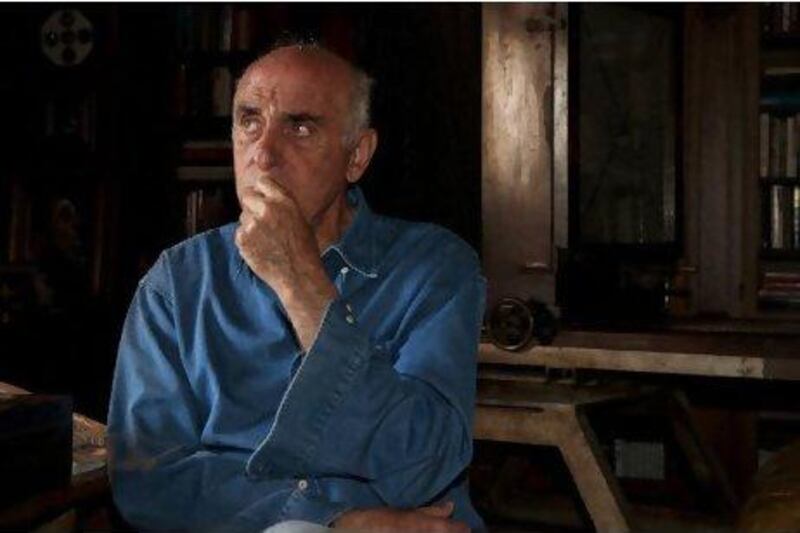NABLUS // Munib Al Masri is a man bursting with optimism. This no doubt helped him amass tremendous wealth and forge a rapprochement in May between Hamas and Fatah, a move many considered impossible yet necessary for Palestinian independence.
But reconciliation between the two factions has since faltered and the billionaire's mood, brimming with enthusiasm only a few months ago, has now darkened when it comes to the future.
The push for Palestinian statehood Latest stories, background and analysis from The National
[ Click here ]
"We have failed. I will be the first to admit we have failed," Mr Al Masri, 75, said yesterday at his hilltop mansion in Nablus.
Mr Al Masri was not referring to the Palestinian UN initiative or the vow by Barack Obama, the US president, to scuttle it.
Although a firm supporter of statehood recognition, he fears it is the Palestinian national project that may now be failing, and with it, the prospect of Palestinians and Israelis living next to each other in separate states.
"We still hope for a two-state solution but if it doesn't happen we'll have to go back to the mantra of George Habbash - one-state solution," he said, referring to the founder of the Popular Front for the Liberation of Palestine, who was an architect of several plane hijackings in the 1970s. Those are grim words from someone who supported and benefitted from the late Yasser Arafat's transition from fighter to peacemaker and potential founder of an independent Palestinian state.
Mr Al Masri's powerful Palestine Development and Investment Company (Padico) conglomerate has formed a strong business foundation for a Palestinian state.
Earning his fortune in the oil industry, the University of Texas-educated geologist is also active in philanthropy and has said his grandiose villa could one day be donated as a scientific institute.
Mr Al Masri avoided answering questions about the business effect of the Palestinian UN bid.
He preferred to reflect on what might have been had the Israeli architect of the 1990s Oslo peace process, the former prime minister Yitzhak Rabin, not been killed in 1995 by an Israeli student opposed to the peace process.
"He was maybe the only [Israeli] leader at that time who really believed that peace with the Palestinians was the right thing," he said. "I miss him a lot."
Now a negotiated end to the peace process looks as distant as ever and expanding Israeli settlements - or "colonies", as Mr Al Masri calls them, prompted him to question the viability of a Palestinian state.
"Where would you put it?" he asked.
He predicted that an elevated status at the UN, possibly to non-member voting state, could help the Palestinians parry against Israel's occupation.
They might try to take Israeli leaders to the International Criminal Court for war crimes, he said.
Mr Al Masri also spoke of pressing forward with Hamas-Fatah reconciliation, even though the two sides have frozen their agreement since he and a group of prominent Palestinians cajoled them into putting aside their differences last May.
But without outside support, particularly from the US, Israel's occupation could not be pushed back.
If anything, it will be harder to do that with the uncompromising ideology of a right-wing Israeli government that wants to take Palestinians "into the forest, where they will be lost for 20 years".
He called on Israel's prime minister, Benjamin Netanyahu, to come to the negotiating table with practical solutions for ending the conflict.
But Mr Al Masri was under no illusions of the man whose pro-settler coalition is widely blamed for collapsing talks last September.
"What does Netanyahu want from us?" asked Mr Al Masri. "Does he want to throw us into the sea or the desert?"





